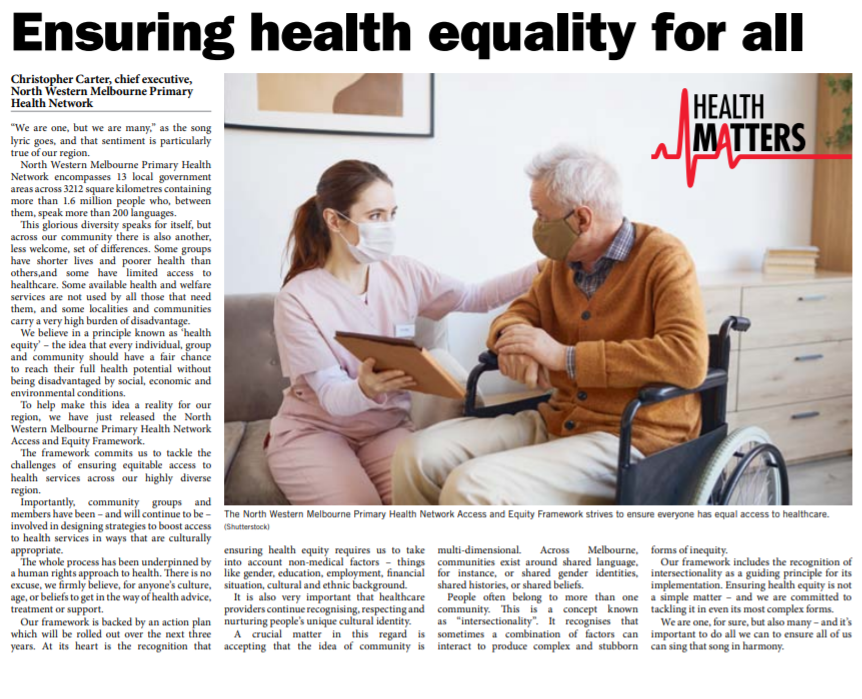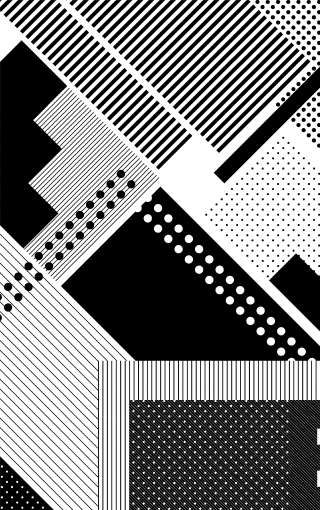
This article was first published in the 2 November edition of the Northern Star Weekly.
Written by Christopher Carter, CEO, NWMPHN
“We are one, but we are many,” as the song lyric goes, and that sentiment is particularly true of our region.
North Western Melbourne Primary Health Network encompasses 13 local government areas across 3212 square kilometres containing more than 1.6 million people who, between them, speak more than 200 languages.
This glorious diversity speaks for itself, but across our community there is also another, less welcome, set of differences. Some groups have shorter lives and poorer health than others,and some have limited access to healthcare. Some available health and welfare services are not used by all those that need them, and some localities and communities carry a very high burden of disadvantage.
We believe in a principle known as ‘health equity’ – the idea that every individual, group and community should have a fair chance to reach their full health potential without being disadvantaged by social, economic and environmental conditions.
To help make this idea a reality for our region, we have just released the North Western Melbourne Primary Health Network Access and Equity Framework.
The framework commits us to tackle the challenges of ensuring equitable access to health services across our highly diverse region.
Importantly, community groups and members have been – and will continue to be – involved in designing strategies to boost access to health services in ways that are culturally appropriate.
The whole process has been underpinned by a human rights approach to health. There is no excuse, we firmly believe, for anyone’s culture, age, or beliefs to get in the way of health advice, treatment or support.
Our framework is backed by an action plan which will be rolled out over the next three years. At its heart is the recognition that ensuring health equity requires us to take into account non-medical factors – things like gender, education, employment, financial situation, cultural and ethnic background.
It is also very important that healthcare providers continue recognising, respecting and nurturing people’s unique cultural identity.
A crucial matter in this regard is accepting that the idea of community is multi-dimensional. Across Melbourne, communities exist around shared language, for instance, or shared gender identities, shared histories, or shared beliefs.
People often belong to more than one community. This is a concept known as “intersectionality”. It recognises that sometimes a combination of factors can interact to produce complex and stubborn forms of inequity.
Our framework includes the recognition of intersectionality as a guiding principle for its implementation. Ensuring health equity is not a simple matter – and we are committed to tackling it in even its most complex forms.
We are one, for sure, but also many – and it’s important to do all we can to ensure all of us can sing that song in harmony.




